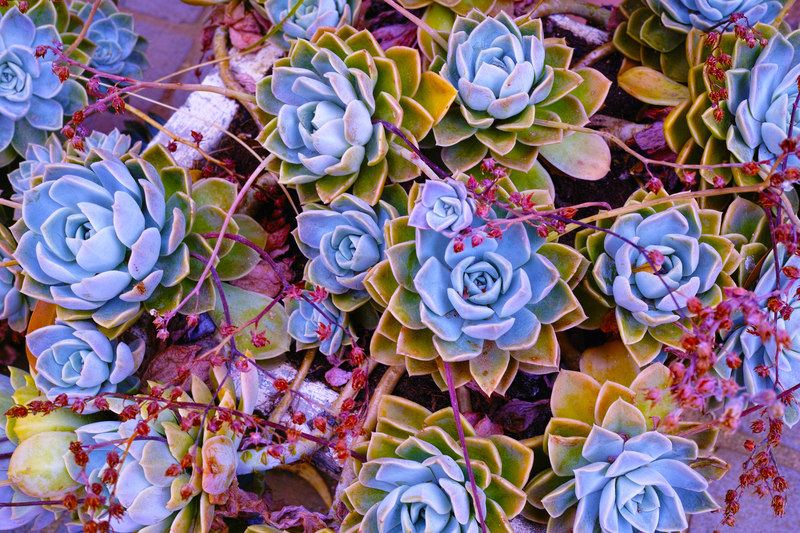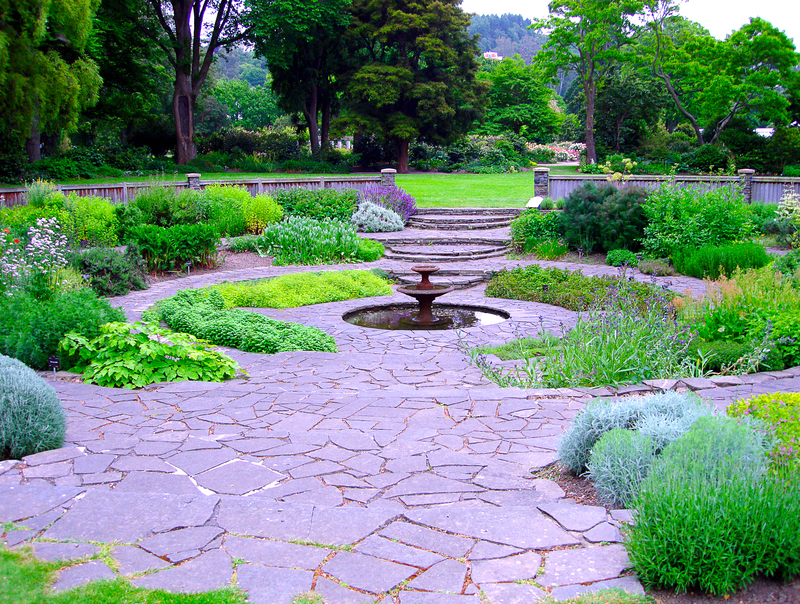Achieving Orchid Elegance with Proper Care
Posted on 25/06/2025
Achieving Orchid Elegance with Proper Care
Orchids have long been admired for their rare beauty, exotic allure, and delicate flowers. Achieving orchid elegance requires more than admiration--it demands a deep understanding of their unique needs. Whether you are a new orchid owner or a seasoned enthusiast, mastering the art of proper orchid care can reward you with thriving plants and exquisite blooms year after year.

Why Orchids Captivate Indoor Gardeners
Known for their intricate flowers and lush foliage, orchids can transform any home or office into an oasis of sophistication. Among thousands of species, phalaenopsis (the moth orchid), dendrobium, and cattleya are among the most popular for home growers due to their adaptability and stunning appearance.
- Unique flower shapes, colors, and fragrances
- Long-lasting blooms, often persisting for weeks or even months
- Symbol of luxury and elegance in interior design
But to achieve true orchid elegance, understanding your orchid's specific needs is essential. Let's explore the key factors and methods for transforming your orchids into a statement of refined beauty.
Understanding Orchid Needs: The Foundation of Elegance
1. Choosing the Right Orchid Variety
The journey to successful orchid care begins with selection. Different species require subtly different conditions.
- Phalaenopsis: Adaptable and great for beginners
- Dendrobium: Requires a bit more light and cooler temperatures
- Cattleya: Known for their strikingly large and fragrant flowers
Research or consult with nursery experts to pick a species that matches your environment and skill level.
2. Light: Illuminating Orchid Beauty
Most orchids require bright, indirect light to grow and bloom elegantly. Direct sun can scorch delicate leaves, while too little light inhibits flowering.
- Place near an east- or south-facing window, shielded by sheer curtains
- Supplement with grow lights if natural sunlight is inadequate
- Monitor leaf color: Medium green is ideal (yellowish suggests too much light, dark green means too little)
3. Temperature & Humidity: Setting the Perfect Climate
Orchids thrive in temperatures that mimic their native habitats:
- Daytime: 65-80?F (18-27?C)
- Nighttime: 60-65?F (15-18?C)
- Slight nighttime drops encourage flowering
Humidity should be kept between 40-60% for most common orchids. Use humidity trays, misting, or a room humidifier to maintain optimal moisture levels.
4. Watering: The Key to Vigorous Growth
Improper watering is the most common cause of orchid stress or failure.
- Water thoroughly but allow excess water to drain completely
- Let potting medium almost dry out between waterings
- Frequency varies with season, light, temperature, and potting mix (typically every 7-10 days)
- Use room-temperature, non-softened water
Avoid letting orchids sit in water, which causes root rot and stunts elegance.
5. Potting Medium & Containers: Foundation of Orchid Health
Orchids have aerial roots designed for air circulation around them, not dense soil. Special orchid potting mixes--such as bark, sphagnum moss, or coconut husks--enable proper airflow and drainage.
- Bark-based mixes: Common for phalaenopsis and dendrobium
- Moss-based mixes: Work well for seedlings or high-humidity needs
- Clear plastic pots: Help monitor root health and moisture levels
Repot every 1-2 years to prevent medium breakdown and ensure continuous health.
Steps for Achieving Long-Lasting Orchid Elegance
1. Mastering Repotting Techniques
Repotting is crucial for preserving orchid vitality and blooming potential. Here's how to do it:
- Choose a slightly larger pot with ample drainage
- Gently loosen roots, removing old, decayed medium
- Trim away soft or blackened roots
- Position in fresh orchid mix, keeping the base above the medium
Repotting not only refreshes root space but also encourages new growth and more robust flowering, leading to increased orchid elegance.
2. Feeding Orchids: Balanced Nutrition
Healthy orchids produce elegant, profuse blooms. Fertilizing regularly (but not excessively) is key:
- Use a balanced fertilizer (20-20-20 or "orchid-specific" blends) diluted to half-strength
- Feed every 2-3 weeks during active growth (spring and summer)
- Rinse pot and medium with clear water every few feedings to prevent salt buildup
Nitrogen supports leaf growth, while phosphorus and potassium are vital for flowering. With proper feeding, orchids achieve peak elegance in color and form.
3. Pruning and Deadheading for Lasting Beauty
Pruning extends flowering time and maintains a neat, elegant appearance.
- Trim spent flower spikes just above a healthy node for possible reblooming (in phalaenopsis)
- Remove yellowed, damaged, or diseased leaves
- Sanitize tools before and after use to prevent the spread of infections
Consistent pruning keeps your orchids healthy and their appearance refined.
4. Pest and Disease Control: Safeguarding Orchid Radiance
Vigilance prevents common issues like scale, mealybugs, or fungal infections from marring your orchids' elegance.
- Inspect weekly, especially under leaves and near roots
- Wipe leaves with a damp cloth or spray with mild insecticidal soap
- Isolate affected plants immediately
- Provide strong air circulation to minimize fungal risks
Proactive care keeps your orchids healthy and their blooms brilliant.
Advanced Techniques for Orchid Elegance
Orchid Mounting and Display
Elegant orchids are not limited to pots! Mounting certain species (like phalaenopsis or cattleyas) on bark slabs, driftwood or cork can create a striking display.
- Use sphagnum moss to retain moisture at the roots
- Secure roots with natural string or ties
- Mist frequently if humidity is low
Orchids displayed this way give a natural, garden-inspired touch to any space, amplifying their elegance.
Orchid Arrangements and Design Tips
Take your display to the next level:
- Group species with similar care needs together
- Select pots that complement your decor style
- Use elegant trays, pebbles, or moss for a luxury finish
- Rotate arrangements for even growth and balanced development
Proper arrangement and display can elevate orchids from plants to living art, embodying sophistication and luxury.
Troubleshooting Common Orchid Care Issues
Even with the best care, challenges may arise. Here's how to maintain orchid perfection:
Orchid Leaves Turning Yellow
- Natural aging: Older leaves at the base will naturally yellow and drop
- Excess watering or poor drainage: Ensure proper medium and pot
- Lighting issues: Adjust position for bright, indirect light
Failing to Bloom
- Light is insufficient: Increase exposure with careful monitoring
- Nutrient deficiencies: Feed regularly during active growth
- Temperature swings: Provide a nighttime drop of 10?F to trigger flowering
Wrinkled or Shriveled Leaves
- Underwatering: Increase watering slightly, but avoid waterlogging
- Root rot: Check roots for signs of decay and repot if necessary
Seasonal Orchid Care for Sustained Elegance
Orchid requirements shift subtly throughout the year. Adapting your care ensures continued health and vibrant blossoms:
Spring and Summer
- Increase watering and feeding as growth accelerates
- Protect from intense midday sun
- Ventilate to keep humidity up and temperatures moderate
Autumn and Winter
- Reduce watering as growth slows and temperatures drop
- Maintain humidity (dry air from heating can stress orchids)
- Continue with periodic feeding, but reduce frequency
Regular observation ensures your orchids remain the centerpiece of elegance in any season.
The Joy and Reward of Elegant Orchids
Orchids are a living expression of refinement, transformation, and patience. Few houseplants offer such a powerful combination of challenge and reward. Mastering the nuances of orchid care lets you witness these plants reach their full dramatic potential, year after year.
With the right knowledge, dedication, and attention to detail outlined in this comprehensive guide, achieving--and maintaining--orchid elegance is well within your reach.
- Embrace the unique needs of your orchid species
- Prioritize proper watering and humidity
- Choose the best light and potting medium
- Feed, prune, and monitor for pests
- Experiment with display and arrangement to suit your personal style
Soon, your home will be graced with the timeless beauty and graceful presence of thriving orchids--true emblems of orchid elegance achieved through proper care.

Frequently Asked Questions About Orchid Elegance
How often should I water my orchids?
Most orchids need watering every 7-10 days, depending on local humidity, temperature, and potting medium. Always check the top inch of the medium; if it's dry, it's time to water.
What is the best light for elegant orchids?
Bright, indirect light is essential. Use east- or south-facing windows shielded by sheer curtains. If natural light is insufficient, consider LED grow lights.
Why do orchid leaves turn yellow or wrinkle?
Yellowing commonly results from excess water, insufficient light, or aging. Wrinkled leaves indicate underwatering or root problems. Assess and adjust your care routine accordingly.
Can orchids rebloom after flowers fall?
Yes! Most orchids can rebloom with proper care. Phalaenopsis, for example, sometimes reflowers from old stems. Support this process with balanced nutrition and a slight nighttime temperature drop.
How do I get rid of orchid pests?
Regularly inspect and clean leaves. Use mild insecticidal soap or neem oil on pests. Isolate affected plants and maintain strong air circulation for disease prevention.
Conclusion: Orchids as Icons of Grace and Beauty
Achieving orchid elegance with proper care is an ongoing journey that brings both satisfaction and beauty to your indoor space. By applying the steps and insights highlighted in this guide, your orchids will flourish in health and style. Let their refined blooms inspire your love of horticulture and transform your home with their enduring, graceful presence.
For more information, connect with local orchid societies, explore expert blogs, and never stop learning from your plants. With patience and care, you can cultivate the ultimate symbol of elegance--the stunning, resilient orchid.


